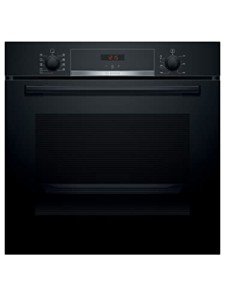Think You're Cut Out For Cooker Integrated? Try This Quiz
The Rise of Integrated Cookers: A Comprehensive Guide
In the quickly developing world of kitchen innovation, integrated cookers have become progressively popular amongst house owners and chefs alike. These multifunctional appliances perfectly blend into kitchen cabinets, supplying both practicality and visual appeal. This short article explores the advantages of integrated cookers, their types, installation considerations, and more.
What is an Integrated Cooker?
An integrated cooker is a built-in kitchen home appliance designed to fit within a modular kitchen design, offering a clean and cohesive appearance. Unlike standalone cookers, integrated cookers occupy less space and often come with additional features that can improve the cooking experience.
Advantages of Integrated Cookers
- Space Efficiency: Integrated cookers are developed to fit snugly into cabinetry, conserving valuable flooring area in kitchens.
- Aesthetic Appeal: With sleek styles that match other kitchen appliances, they add to a structured and modern look.
- Flexibility: Many integrated cookers come geared up with different cooking functions such as baking, grilling, and steaming, offering more choices for meal preparation.
- Enhanced Features: Integrated cookers often consist of advanced technologies, such as clever thermostats and self-cleaning alternatives, improving usability and benefit.
- Safety Enhancements: Many designs come with functions such as kid locks and automatic shutoff systems, making them safer for household use.
Kinds Of Integrated Cookers
There is a broad variety of integrated cookers available, each tailored to particular cooking styles and preferences:
1. Integrated Ovens
- Standard Ovens: Regular ovens that offer consistent heating suitable for baking and roasting.
- Convection Ovens: These use fans to flow hot air, cooking food more evenly and quickly.
- Steam Ovens: Utilize steam innovation to keep wetness and vitamins in food while cooking.
2. Integrated Induction Hobs
- Induction Cooktops: Provide fast and effective cooking by utilizing electro-magnetic fields to heat pots and pans directly.
- Ceramic Hobs: Featuring a smooth glass surface area, they warm up rapidly and offer easy cleansing.
3. Integrated Microwaves
- Built-in Microwaves: These can be installed into cabinets and frequently included advanced functions like barbecuing and steaming options.
Crucial Considerations for Installation
When selecting an integrated cooker, certain setup factors to consider should be taken into account to make sure optimum performance and security.
- Area Requirements: Measure the readily available area in the kitchen to select the best size of the cooker.
- Ventilation Needs: Proper ventilation is essential, especially for gas cookers, to prevent the accumulation of hazardous gases.
- Electric Supply: Ensure that the home's electrical system can manage the power requirements of the brand-new integrated home appliance.
Setup Steps
- Preparation: Sketch out the kitchen design, consisting of the preferred area for the integrated cooker.
- Measurement: Accurately determine the measurements to ensure correct fit.
- Preparation: Prepare the surrounding kitchen cabinetry and electrical connections according to the producer's guidelines.
- Setup: Follow the manufacturer's setup guidelines or work with a professional for a smooth setup.
Upkeep of Integrated Cookers
Routine Cleaning
- Wipe Surfaces: Utilize a wet cloth to regularly wipe down surface areas to avoid buildup.
- Deep Clean: Conduct a deep tidy using proper appliances cleaners regularly.
Routine Checks
- Check Seals: Check the door seals to ensure they are intact to preserve cooking effectiveness.
- Test Functions: Regularly test all cooking functions to ensure they run correctly.
Frequently asked questions
What are the benefits of integrated cookers compared to standalone models?
Integrated cookers save space, improve kitchen aesthetic appeals, and frequently use sophisticated cooking features that standalone designs may not consist of.
Can I install an integrated cooker myself?
While some homeowners might have the ability to set up an integrated cooker, it's recommended to engage an expert to make sure correct installation and adherence to safety requirements.
Are integrated cookers more costly than conventional cookers?
Integrated cookers can come at a higher rate point due to their style and advanced features, however they can offer exceptional value in terms of space-saving and increased performance.
Do integrated cookers need special upkeep?
While they do not require any customized upkeep, keeping them clean and routinely looking for concerns, such as malfunctioning components, is important.
Are all integrated cookers energy-efficient?
Numerous modern-day integrated cookers are designed to be energy-efficient, using technologies that reduce energy intake while supplying effective cooking performance.
Integrated cookers represent an amazing improvement in kitchen technology, integrating performance with visual appeal. Going Here and space-saving styles make them a popular option for modern cooking areas. By understanding the various types available, installation considerations, and maintenance requirements, consumers can make informed decisions when selecting an integrated cooker that perfectly suits their cooking lifestyle.
With the continuous developments in kitchen appliances, integrated cookers are likely to remain in high demand, catering to the developing requirements of home cooks and professional chefs alike.
